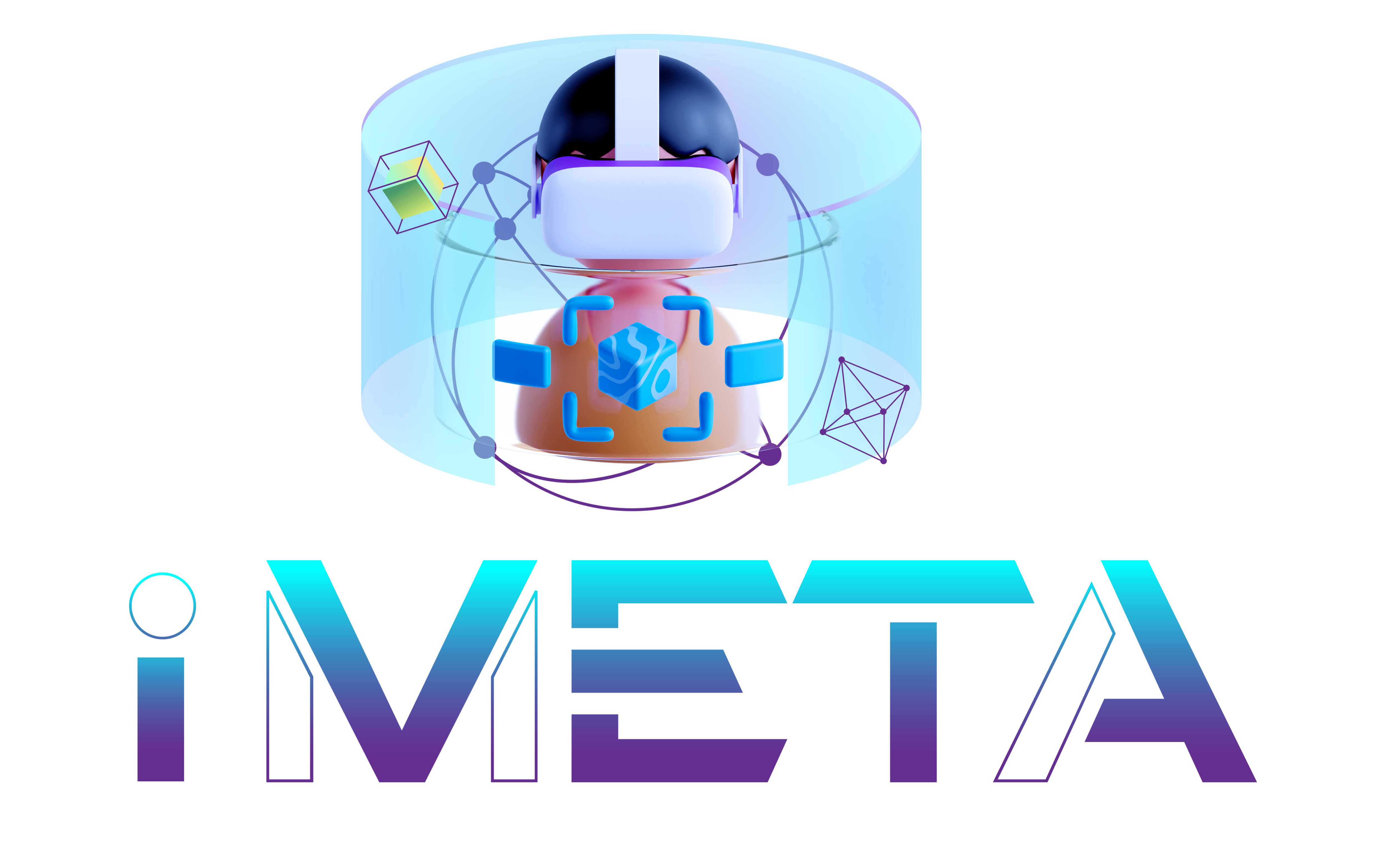KEYNOTE SPEAKERS
List of Keynoters
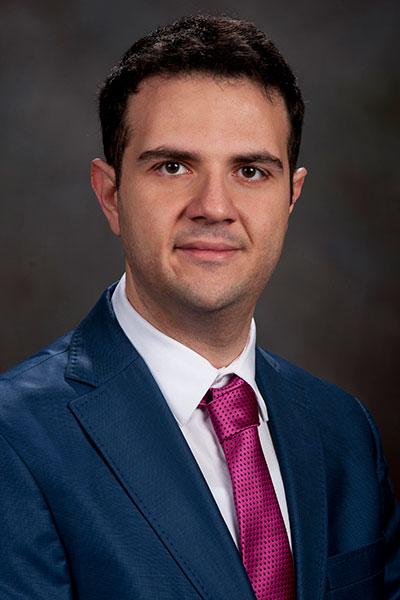 |
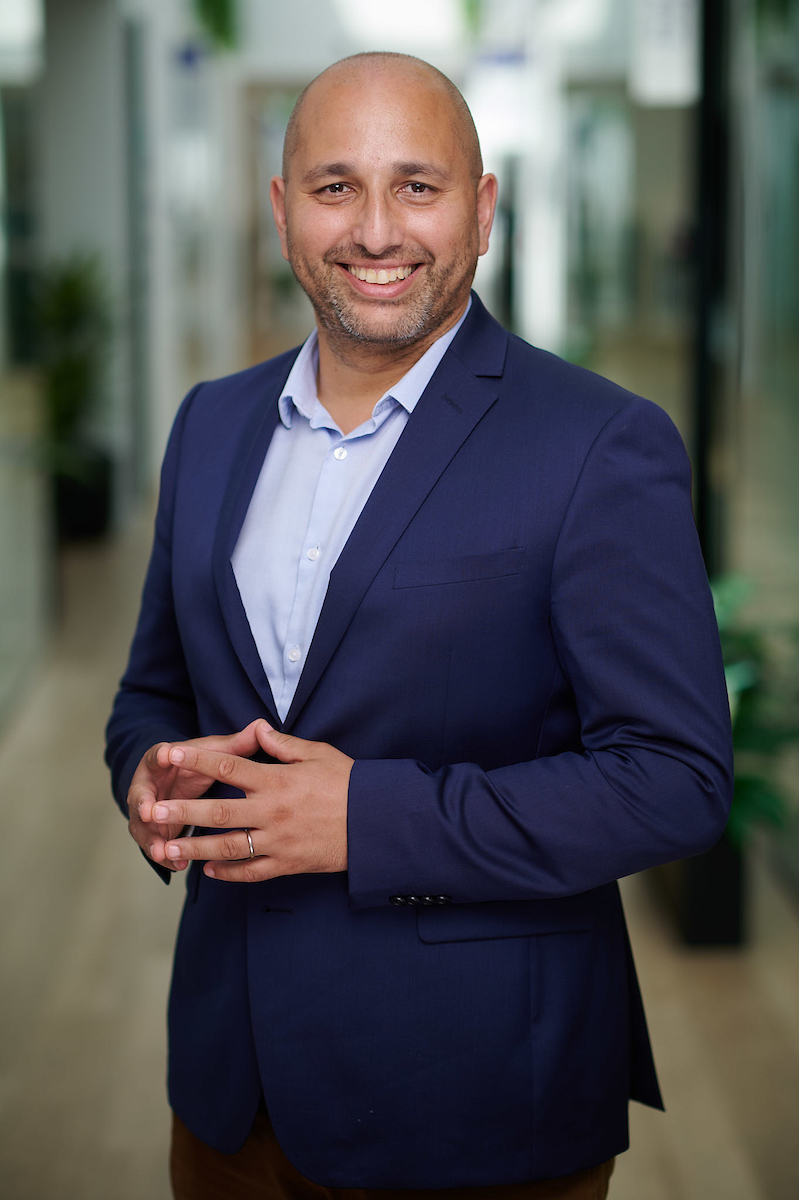 |
 |
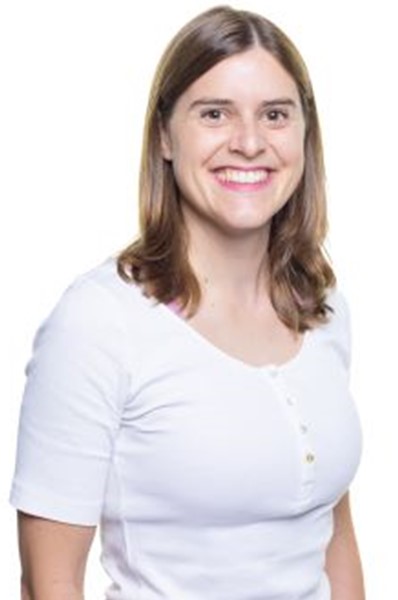 |
| Walid Saad Virginia Tech, USA |
Mérouane Debbah Khalifa University, UAE |
Ian F. Akyildiz Truva Inc. and TII |
Tania Lorido-Botran Roblox USA |
-----------------------------------------------------------------------------------------------------------------------------

Professor Walid Saad
Virginia Tech, USA
Title: Unlocking the Wireless Metaverse with 6G and Artificial Intelligence (AI)
Abstract:
The metaverse is set to revolutionize the way people interact, communicate, and conduct business, blurring the lines between virtual, digital, and physical worlds. This transformation is critical for the advancement of tomorrow's Society 5.0, where a harmonious integration of cyber and physical spaces can address emerging social challenges while boosting economic progress. However, deploying the metaverse at scale to enable global interactivity requires a confluence of cutting-edge technologies, from wireless communication systems to digital twins, extended reality, and artificial intelligence (AI). In this talk, we explore new frameworks for the synergistic integration of these technologies, and explore how this integration has the potential to catalyze the deployment of a limitless, wireless metaverse. We start by investigating how key capabilities of 6G systems, such as joint communications and sensing at terahertz (THz) frequencies as well as edge computing, can deliver the physical experience and synchronization necessary to create a seamless connection between the virtual and physical worlds. We then examine the advancements required in the field of AI to achieve cognition and reasoning in wireless networks. In this space, we first discuss the role of continual learning in synchronizing digital twins in the metaverse. Then, we introduce a reasoning-based semantic communications framework that is firmly grounded in rigorous AI foundations that can potentially revolutionize the way metaverse data and information is modeled, transmitted, and processed in communication systems. We show how, by embracing semantic communications through our proposed vision, we can usher in a new era of knowledge-driven, reasoning wireless networks that are more sustainable and resilient than today's data-driven, knowledge-agnostic networks, thus creating an AI-native system that can support the metaverse. In this space, we show how reasoning-based semantic communications can enable effective communications and control for digital twins over wireless systems. Our key results will showcase how the use of semantic communications can reduce the volume of data circulating in a network while improving reliability, two critical requirements for the metaverse and its applications. We conclude by articulating a research roadmap that delineates the requisite innovations at the confluence of AI, 6G, and computing to fully realize the potential of the wireless metaverse.
Biography:
Walid Saad (S’07, M’10, SM’15, F’19) received his Ph.D degree from the University of Oslo, Norway in 2010. He is currently a Professor at the Department of Electrical and Computer Engineering at Virginia Tech, where he leads the Network sciEnce, Wireless, and Security (NEWS) laboratory. He is also the Next-G Wireless Faculty Lead at Virginia Tech's Innovation Campus. His research interests include wireless networks (5G/6G/beyond), machine learning, game theory, security, UAVs, semantic communications, cyber-physical systems, and network science. Dr. Saad is a Fellow of the IEEE. He is also the recipient of the NSF CAREER award in 2013, the AFOSR summer faculty fellowship in 2014, and the Young Investigator Award from the Office of Naval Research (ONR) in 2015. He was the (co-)author of eleven conference best paper awards at IEEE WiOpt in 2009, ICIMP in 2010, IEEE WCNC in 2012, IEEE PIMRC in 2015, IEEE SmartGridComm in 2015, EuCNC in 2017, IEEE GLOBECOM (2018 and 2020), IFIP NTMS in 2019, IEEE ICC (2020 and 2022). He is the recipient of the 2015 and 2022 Fred W. Ellersick Prize from the IEEE Communications Society, and of the IEEE Communications Society Marconi Prize Award in 2023. He was also a co-author of the papers that received the IEEE Communications Society Young Author Best Paper award in 2019, 2021, and 2023. Other recognitions include the 2017 IEEE ComSoc Best Young Professional in Academia award, the 2018 IEEE ComSoc Radio Communications Committee Early Achievement Award, and the 2019 IEEE ComSoc Communication Theory Technical Committee Early Achievement Award. From 2015-2017, Dr. Saad was named the Stephen O. Lane Junior Faculty Fellow at Virginia Tech and, in 2017, he was named College of Engineering Faculty Fellow. He received the Dean's award for Research Excellence from Virginia Tech in 2019. He was also an IEEE Distinguished Lecturer in 2019-2020. He has been annually listed in the Clarivate Web of Science Highly Cited Researcher List since 2019. He currently serves as the Editor-in-Chief for the IEEE Transactions on Machine Learning in Communications and Networking.
-----------------------------------------------------------------------------------------------------------------------------

Professor Mérouane Debbah
Professor, Khalifa University of Science and Technology
Abu Dhabi, UAE
Title: Immersive Media and Massive Twinning: Advancing Towards the Metaverse
Abstract:
The advent of the Metaverse concept has further expedited the evolution of haptic, tactile internet, and multimedia applications with their VR/AR/XR services, and therefore, fully immersive sensing is most likely to define the next generation of wireless networks as a key to realize the speculative vision of the Metaverse. In this talk, we articulate different types of media that we envision will be communicated between the cyber and physical twins in the Metaverse. In particular, we explore the advantages grasped by exploiting each kind, and we point out critical challenges pertinent to 3D data processing, coding, transporting, and rendering. We further shed light on the role of future wireless networks in delivering the anticipated quality of immersion through the reliable streaming of multimedia signals between the digital twin and its physical counterpart. Specifically, we explore emergent communication paradigms, including semantic, holographic, and goal-oriented communication, which we expect to realize energy and spectrally efficient Metaverse while ensuring ultra-low latency
Biography:
Mérouane Debbah is Professor at Khalifa University of Science and Technology in Abu Dhabi. He received the M.Sc. and Ph.D. degrees from the Ecole Normale Supérieure Paris-Saclay, France. He was with Motorola Labs, Saclay, France, from 1999 to 2002, and then with the Vienna Research Center for Telecommunications, Vienna, Austria, until 2003. From 2003 to 2007, he was an Assistant Professor with the Mobile Communications Department, Institut Eurecom, Sophia Antipolis, France. Since 2007, he is Full Professor at CentraleSupelec, Gif-sur-Yvette, France. From 2007 to 2014, he was the Director of the Alcatel-Lucent Chair on Flexible Radio. From 2014 to 2021, he was Vice-President of the Huawei France Research Center. He was jointly the director of the Mathematical and Algorithmic Sciences Lab as well as the director of the Lagrange Mathematical and Computing Research Center. From 2021 to 2023, he was Chief Researcher at the Technology Innovation Institute and leading the AI & Digital Science Research centers at the Technology Innovation Institute. He was also Adjunct Professor with the Department of Machine Learning at the Mohamed Bin Zayed University of Artificial Intelligence in Abu Dhabi. Since 2023, he is a Professor at Khalifa University of Science and Technology in Abu Dhabi and founding director of the 6G center. He has managed 8 EU projects and more than 24 national and international projects. His research interests lie in fundamental mathematics, algorithms, statistics, information, and communication sciences research. He holds more than 50 patents. He is an IEEE Fellow, a WWRF Fellow, a Eurasip Fellow, an AAIA Fellow, an Institut Louis Bachelier Fellow and a Membre émérite SEE. He was a recipient of the ERC Grant MORE (Advanced Mathematical Tools for Complex Network Engineering) from 2012 to 2017. He was a recipient of the Mario Boella Award in 2005, the IEEE Glavieux Prize Award in 2011, the Qualcomm Innovation Prize Award in 2012, the 2019 IEEE Radio Communications Committee Technical Recognition Award and the 2020 SEE Blondel Medal. He received more than 30 best paper awards, among which the 2007 IEEE GLOBECOM Best Paper Award, the Wi-Opt 2009 Best Paper Award, the 2010 Newcom++ Best Paper Award, the WUN CogCom Best Paper 2012 and 2013 Award, the 2014 WCNC Best Paper Award, the 2015 ICC Best Paper Award, the 2015 IEEE Communications Society Leonard G. Abraham Prize, the 2015 IEEE Communications Society Fred W. Ellersick Prize, the 2016 IEEE Communications Society Best Tutorial Paper Award, the 2016 European Wireless Best Paper Award, the 2017 Eurasip Best Paper Award, the 2018 IEEE Marconi Prize Paper Award, the 2019 IEEE Communications Society Young Author Best Paper Award, the 2021 Eurasip Best Paper Award, the 2021 IEEE Marconi Prize Paper Award, the 2022 IEEE Communications Society Outstanding Paper Award, the 2022 ICC Best paper Award, the 2022 IEEE GLOBECOM Best Paper Award, 2022 IEEE TAOS TC Best GCSN Paper Award, the 2022 IEEE International Conference on Metaverse Best Paper Award, the 2023 IEEE Communications Society Fred W. Ellersick Prize, the 2023 ICC best paper award as well as the Valuetools 2007, Valuetools 2008, CrownCom 2009, Valuetools 2012, SAM 2014, and 2017 IEEE Sweden VT-COM-IT Joint Chapter best student paper awards. He is an Associate Editor-in-Chief of the journal Random Matrix: Theory and Applications. He was an Associate Area Editor and Senior Area Editor of the IEEE TRANSACTIONS ON SIGNAL PROCESSING from 2011 to 2013 and from 2013 to 2014, respectively. From 2021 to 2022, he served as an IEEE Signal Processing Society Distinguished Industry Speaker.
-----------------------------------------------------------------------------------------------------------------------------

Professor Ian F. Akyildiz
Founder and President of the Truva Inc.
Advisory Board member at TII
Title: NETWORKING 2030: Metaverse, Extended Reality, Hologram Type and Mulsemedia Communication Challenges for 6G/Beyond Wireless Systems
Abstract:
The term "METAVERSE" (META= BEYOND) and (VERSE=UNIVERSE) can be regarded as the evolution of the Internet where there will be almost no separation between digital and physical. This will be made possible thanks to the convergence of key emerging technologies such as Extended Reality (XR) (the umbrella term for Virtual Reality (VR), Augmented Reality (AR), Mixed Reality (MR)), Mulsemedia as well as Hologram Type Communication (HTC). In this talk, the XR, Mulsemedia, HTC technologies are explored and according research challenges concerning wireless communications for the next decade are presented. XR, Mulsemedia and HTC provide truly immersive experiences for a plethora of use cases for the Networking 2030 and Beyond. They face great challenges in transmitting high volume data with high throughput and guaranteed end-to-end latency which cannot be addressed by existing/current communication technologies. In this talk, a roadmap towards wireless ultimate XR, Mulsemedia and HTC technologies is presented. The basics, existing products and use cases of these technologies are reviewed. Upon which technical requirements and bottlenecks of realizing these technologies within wireless communication systems are identified.
Biography:
I.F. Akyildiz (Life Fellow, IEEE) received the B.S., M.S., and Ph.D. degrees in Electrical and Computer Engineering from the University of Erlangen–Nürnberg, Germany, in 1978, 1981, and 1984, respectively. He is also Founder and President of the Truva Inc., a consulting company based in Georgia, USA, since 1989. He is an Advisory Board member at the Technology Innovation Institute (TII) Abu Dhabi, United Arab Emirates, since June 2020. He is the Founder and the Editor-in-Chief of the newly established of International Telecommunication Union Journal on Future and Evolving Technologies (ITU J-FET) since August 2020. He served as the Ken Byers Chair Professor in Telecommunications, the Past Chair of the Telecom Group at the ECE, and the Director of the Broadband Wireless Networking Laboratory, Georgia Institute of Technology, from 1985 to 2020. He had many international affiliations during his career and established research centers in Spain, South Africa, Finland, Saudi Arabia, Germany, Russia, India and Cyprus. Dr. Akyildiz is an IEEE Fellow since 1996, and ACM Fellow since 1997. He received numerous awards from IEEE, ACM, and other professional organizations, including Humboldt Award from Germany and Tubitak Award from Turkey. In June 2022, according to Google Scholar his h-index is 133 and the total number of citations to his articles is more than 134+K. His current research interests include Networking 2030, Hologram and Extended Reality Communication, 6G/7G wireless systems, Terahertz Communication, Underwater Communication.
-----------------------------------------------------------------------------------------------------------------------------

Dr. Tania Lorido-Botran
Research scientist at Roblox
Title: Metaverse, Metastability and Beyond
Abstract:
Roblox Metaverse supports an impressive 55M daily users. The underlying infrastructure is geographically distributed, with multiple edge data centers in all continents. The Metaverse stack consists of multiple layers of software systems, with complex dependencies that can be represented as a DAG (Directed Acyclic Graph) or a multi-layered queueing system. In short, the concept of Metastability happens when each moving part of the stack works in harmony. In contrast, a Metastable failure results from a trigger originating in some part of the stack that cascades through multiple dependencies to finally affect a third-party system. Such kind of failure has large-scale consequences and can deem the overall stack unusable. The present talk will deep-dive in the characterization (or absence) of metastability based on a queueing theory model and analyze the dynamics that can lead to different flavors of system-wide failures. Furthermore, the model will be used as the basis to (mathematically) devise measures for the early detection of failures and explore fault-tolerance measures that ensure metastability.
Biography:
Tania Lorido-Botran is a full time research scientist at Roblox, where she leads several efforts at the intersection of Machine Learning and Distributed Systems. Prior to that, she worked at Microsoft and the Pacific Northwest National Laboratory. Dr. Lorido-Botran holds a PhD from University of Deusto with a Cum Laude Distinction. She is very active within the research community: invited keynotes (ACM DEBS´23, HotCloudPerf´23, BDCAT'22), doctoral symposium co-chair (ACSOS´23), session chair (ACM DEBS'23), panelist (HotCloudPerf'23), PC member (CCGRID´23, DEBS´23, HotCloudPerf'23, etc). Her research interests include ML for Systems, data center sustainability and fault tolerance.


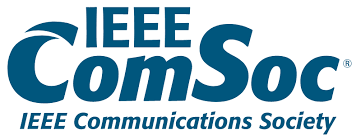
Important dates
Paper Submission
- Papers due:
July 4July 11th, 2023 (Firm and Final) - Acceptance notification: August 05, 2023
- Camera-ready paper due: August 20, 2023
Workshop/Tutorial
- Proposal due: June 1, 2023
- Acceptance notification: June 10, 2023
- Workshop paper submission: July 10, 2023
- Author notification: August 10, 2023
- Camera-ready paper due: August 31, 2023




